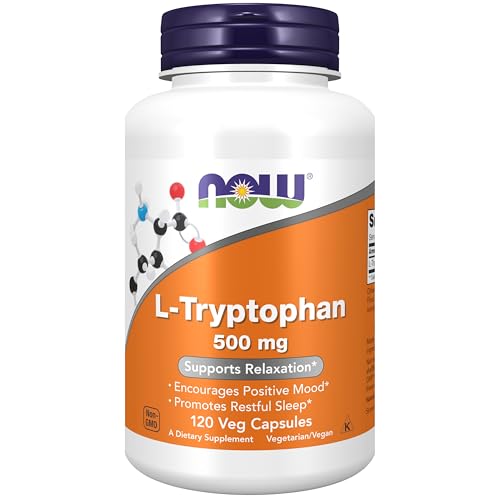Introduction to Essential Amino Acids
Table of Contents
Amino acids are organic compounds that serve as the building blocks of proteins. They play a vital role in various physiological processes within the human body. They combine in various sequences to form proteins. These proteins are crucial for cell structure, function, and regulation of tissues and organs. While there are 20 different amino acids, they can be categorized into two main groups: essential and non-essential amino acids. The body cannot synthesize essential amino acids. These must be obtained through dietary sources. In contrast, non-essential amino acids can be produced internally.
Essential amino acids (EAAs) are important in their multifaceted roles in maintaining health. They contribute to protein synthesis, support immune function, and are integral to the production of hormones and neurotransmitters. The eight essential amino acids include histidine, isoleucine, leucine, lysine, methionine, phenylalanine, threonine, and valine. Each of these amino acids serves specific functions. They are needed in particular amounts to maintain optimal health and physiological functioning.
Understanding the importance of adequate dietary intake of essential amino acids is crucial. Deficiencies can lead to various health issues, such as muscle loss, weakened immune response, and impaired wound healing. The recommended daily intake (RDI) of these amino acids varies. It depends on factors such as age, sex, physical activity levels, and overall health status. Generally, ensuring a balanced diet is important. It should include a variety of protein sources, such as animal products, legumes, nuts, and seeds. This variety can help meet these requirements.
In summary, essential amino acids are fundamental to numerous physiological functions and overall health. Recognizing their importance and incorporating sufficient dietary sources into one’s nutrition can significantly contribute to well-being and bodily functions.

List of Essential Amino Acids and Their Functions
There are nine essential amino acids that the human body cannot synthesize and must be obtained through dietary sources. Each amino acid plays a unique role in various physiological processes, contributing to overall health and well-being.
- L-HISTIDINE: One of many essential amino acids in the body, best known as a precursor to Histamine
- ADVANCED FORMULA: Delivers 1,000 mg of L-Histidine (free form) in quick-release capsules
- EXPERTLY CRAFTED: Our professional formula is backed by our commitment to purity and potency
1. **Histidine**: Histidine is crucial for the production of histamine, a neurotransmitter involved in immune response, digestion, and sleep regulation. It also aids in the maintenance of myelin sheaths, which protect nerve fibers, and is important for growth and tissue repair.
- 500mg of the BCAA Isoleucine Per Capsule (2000mg Per Serving)
- 240 Capsules Per Bottle
- 60 Servings of L-Isoleucine Per Bottle
2. **Isoleucine**: As a branched-chain amino acid, isoleucine plays a key role in energy production, particularly during physical activity. It is also involved in hemoglobin formation and the regulation of blood sugar levels, enhancing immune function and muscle recovery.
- 500 Grams of L-Leucine Powder
- Non-GMO and Gluten Free
- Primary Branched Chain Amino Acid (BCAA)
3. **Leucine**: Leucine is vital for protein synthesis and muscle repair, making it essential in athletic performance and recovery. It helps stimulate insulin secretion, regulates blood sugar levels, and has a role in overall metabolic processes.
- Wound Healing: Supports the healing of unhealthy skin by promoting collagen formation
- Immune Health: Lysine’s nutritional support helps the body maintain its natural defenses and promotes healthy gum and li…
- Skin And Bone Health: Promotes collagen formation for healthy and elastic skin, while also promoting calcium absorption …
4. **Lysine**: This amino acid is important for protein synthesis, hormone production, and enzyme formation. Lysine supports calcium absorption and is crucial for the production of collagen, contributing to skin and bone health.
- ABOUT L-METHIONINE: An essential amino acid that the body needs but cannot produce on its own
- HIGH POTENCY FORMULA: Delivers 1,000 mg L-Methionine per serving in quick release capsules
- EXPERTLY CRAFTED: Our professional formula is backed by our commitment to purity and potency
5. **Methionine**: Methionine serves as a precursor for other important biomolecules, including cysteine and taurine. It plays a key role in detoxification and the metabolism of fats, thereby aiding in cardiovascular health.
- FREE-FORM/VEGAN CAPSULES: Essential amino acid necessary for the synthesis of proteins.
- NERVOUS SYSTEM SUPPORT: Readily converted into the amino acid tyrosine, forming part of the structure of the neurotransm…
- CERTIFICATIONS/CLASSIFICATIONS: Soy Free, Nut Free, Vegan/Vegetarian, Non-GMO, Egg Free, Dairy Free, Made without Gluten
6. **Phenylalanine**: Phenylalanine is converted into tyrosine, an amino acid that is a precursor to dopamine, norepinephrine, and epinephrine. It is essential for the synthesis of neurotransmitters, affecting mood and cognitive functions.
- 120 Capsules of L-Theanine Per Bottle
- 200mg L-Theanine Per Serving (120 Servings)
- Easy To Take Capsules
7. **Threonine**: Threonine is important for the formation of collagen and elastin, supporting skin and connective tissue health. It also contributes to immune function by producing antibodies and facilitating proper digestion.
8. **Tryptophan**: Tryptophan is well-known as a precursor for serotonin, a neurotransmitter that regulates mood, sleep, and appetite. It also plays a role in melatonin production, influencing sleep cycles and overall mental health.
- Maximize your Potential: Enhance your active lifestyle with our L-Valine powder, one of BCAA Amino Acids, designed to su…
- Versatility for all Lifestyles: Whether you’re an athlete, a sprinter, or someone simply looking to stay active, our L-V…
- Optimized in every Serving: Our Valine powder, or Valine Amino Acids powder, is unflavored and free of unnecessary aller…
9. **Valine**: Similar to isoleucine and leucine, valine is a branched-chain amino acid that supports energy production and muscle stability. It assists in recovery following exercise by promoting muscle growth and repair.
Understanding the functions of these essential amino acids highlights their indispensable roles in maintaining health. A balanced diet that includes sources of these amino acids is crucial for optimal physiological functioning.
- Essential Amino Profile: Offers a full spectrum of essential amino acids including histidine, leucine, and tryptophan fo…
- Muscle Recovery Support: Amino acids are the necessary building blocks to aid in muscle repair, metabolism, and muscle p…
- Brain Health Supplement: Essential Aminos supports the production of neurotransmitters for overall brain and cognitive f…
- Maximize your Potential: Enhance your active lifestyle with our Essential Amino Acids gummies, or EAA* gummies, designed…
- Versatility for all Lifestyles:If you are looking to stay active, our EAA* supplement, in EAA* Amino Acids gummies, fits…
- Contain all 9 amino acids: histidine, isoleucine, leucine, lysine, methionine, phenylalanine, threonine, tryptophan, and…
- Codeage Liposomal Multi Amino+ supplement is a comprehensive formula that includes all 9 essential amino acids, building…
- This BCAA (branched-chain amino acid) and EAA (essential amino acid) supplement features a liposomal delivery made with …
- This BCAA supplement is vegan, non-GMO, soy-free, dairy-free, and gluten-free, making it suitable for those with dietary…
Recommended Daily Intake of Each Essential Amino Acid
The essential amino acids are crucial for a variety of bodily functions, including protein synthesis, tissue repair, and nutrient absorption. Consequently, understanding the recommended daily intake for each one is vital for maintaining overall health. The protein needs and corresponding amino acid intake may vary significantly depending on factors such as age, sex, and physical activity level. In general, the World Health Organization (WHO) and other health organizations provide guidelines to assist individuals in meeting these essential requirements.
- For adults, the recommended daily intake for the nine essential amino acids is generally as follows:
- histidine (10 mg/kg),
- isoleucine (20 mg/kg),
- leucine (39 mg/kg),
- lysine (30 mg/kg),
- methionine (10 mg/kg),
- phenylalanine (25 mg/kg),
- threonine (15 mg/kg),
- tryptophan (4 mg/kg),
- valine (26 mg/kg).
- These requirements can be translated from body weight, indicating specific milligrams needed based on one’s weight in kilograms. For example, a typical 70 kg adult would need approximately 700 mg of histidine daily.
It is essential to note that dietary recommendations can differ based on life stage. Children and adolescents need more essential amino acids. This is due to their body weight, growth, and muscle development needs. Additionally, pregnant and lactating women have increased demands to support fetal growth and milk production. Athletes or individuals engaged in regular intense exercise may benefit from higher protein consumption. This increased consumption also affects their amino acid requirements.
Incorporating a well-balanced diet can help individuals meet their essential amino acid needs. This diet should be rich in protein sources such as meat, fish, dairy, legumes, and grains. Monitoring one’s dietary intake becomes more important. This is especially true for those with specific health goals or dietary restrictions. It ensures proper nourishment while fulfilling amino acid requirements.
Food Sources Rich in Essential Amino Acids
Essential amino acids are pivotal components of proteins required for various bodily functions. Obtaining them through diet is crucial. The body cannot synthesize them. Below is a compilation of food sources abundant in essential amino acids, catering to both animal-based and plant-based dietary preferences.
Animal products are generally considered complete proteins, meaning they contain all nine essential amino acids. High-quality sources include:
- Meat: Chicken, beef, and pork offer substantial amounts of all essential amino acids.
- Fish: Salmon, tuna, and cod are particularly rich in amino acids while providing beneficial omega-3 fatty acids.
- Dairy: Milk, yogurt, and cheese are excellent sources of essential amino acids, particularly casein and whey proteins.
- Eggs: Whole eggs are not only packed with essential amino acids but also contain beneficial vitamins and minerals.
For individuals following plant-based diets, some plant proteins may lack one or more essential amino acids. However, a variety of options can be combined to achieve a complete amino acid profile. Recommended plant-based sources include:
- Legumes: Lentils, chickpeas, and black beans are high in essential amino acids and are great protein sources.
- Nuts and Seeds: Almonds, chia seeds, and pumpkin seeds provide essential amino acids alongside healthy fats.
- Whole Grains: Quinoa and oats contain substantial amounts of amino acids, making them excellent staples.
- Tofu and Tempeh: These soy products are rich in essential amino acids and can serve as meat substitutes.
For a balanced intake of essential amino acids, it is beneficial to combine different sources. For example, pairing rice with beans enhances the amino acid profile. Similarly, whole grain bread with peanut butter aids in achieving adequate intake. Thus, incorporating a mix of these food sources into your diet can help. It ensures that you meet your essential amino acid requirements effectively.

























